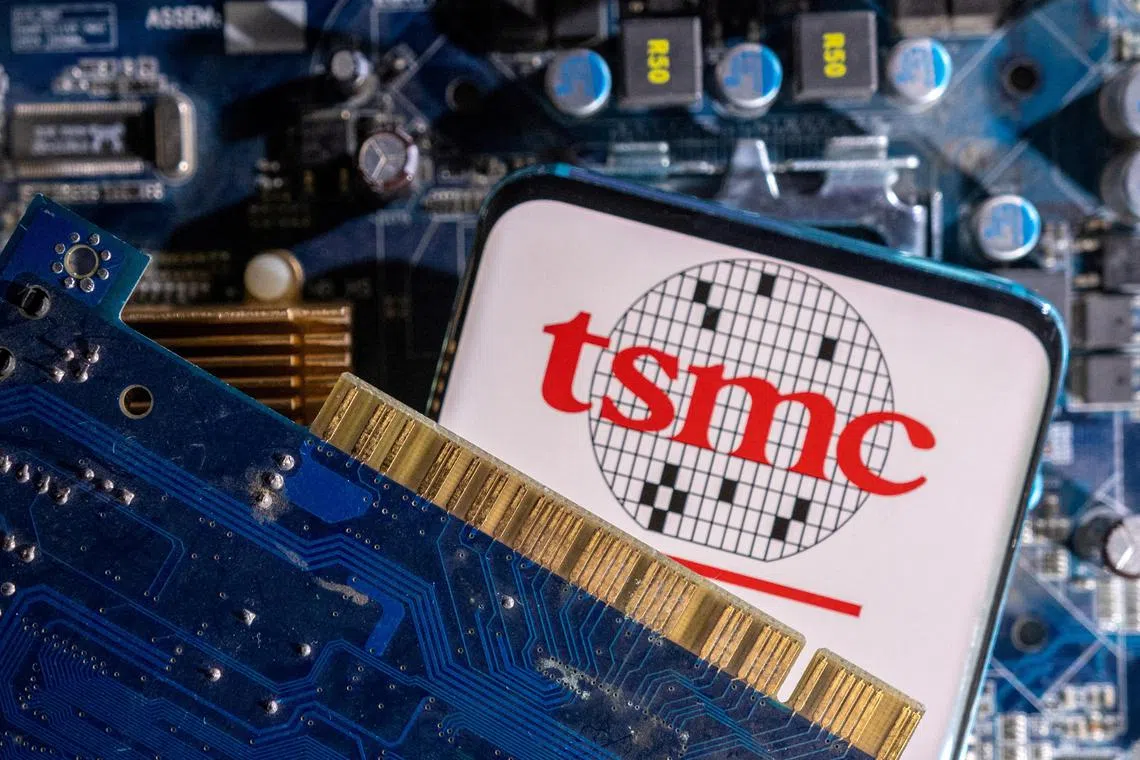TSMC outlook beats estimates as AI demand helps propel business
Sign up now: Get ST's newsletters delivered to your inbox

TSMC has gained about US$340 billion (S$462 billion) in market value since an October 2022 trough.
PHOTO: REUTERS
TAIPEI – Taiwan Semiconductor Manufacturing Company (TSMC) expects revenue to rise as much as about 30 per cent this quarter, reflecting a boom in artificial intelligence (AI) development that is boosting demand for the advanced chips it makes for the likes of Nvidia Corp.
The better-than-projected outlook follows its first profit rise in a year, after strong AI demand revived growth at the world’s biggest contract chipmaker.
The main chipmaker to Nvidia and Apple expects revenue of US$19.6 billion (S$26.6 billion) to US$20.4 billion in the June quarter, versus estimates for about US$19.1 billion.
Taiwan’s largest company last week disclosed its fastest sales growth since 2022, suggesting that demand for the chips that accelerate AI development is beginning to offset the fallout from a smartphone market slump.
Apple, which accounted for about a quarter of its revenue in 2023, started the year with a deep decline in Chinese iPhone sales.
TSMC has gained about US$340 billion in market value since an October 2022 trough, riding bets that it will become one of the clearest winners of a global boom in AI development.
The company set a 2024 capital expenditure budget of US$28 billion to US$32 billion at the start of the year.
It said in January that it expects revenue to grow by at least 20 per cent in 2024 as the broader semiconductor market recovers, although uncertainty persists given global macroeconomic volatility.
Key supplier ASML Holding – the sole provider of the world’s most advanced chipmaking machines – reported a 22 per cent miss on first-quarter bookings on April 17.
In the longer term, investors expect AI-focused chips to gradually take up a larger proportion of revenue. TSMC’s AI revenue is growing at a rate of 50 per cent annually, the company said in January.
Still, some investors have warned that the current level of AI chip demand is unsustainable over the long run. Others remain wary, given the uncertainty hanging over the Taiwan Strait, the narrow body of water between China and the island, which Beijing views as part of its territory. BLOOMBERG


